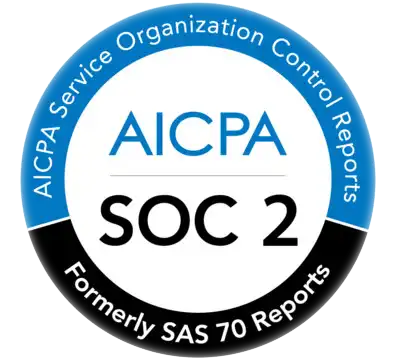If you’re running a business in the state of New York, you need to be aware of your business’ CTA filing with FinCEN (Financial Crimes Enforcement Network) (or FinCEN). Practically all New York business owners need to file Beneficial Owner Information (BOI) reports. There’s a specific way in which this needs to be done, and specific deadlines that need to be met, too.
However, if you’re new to business ownership or the concept of BOI reports, you might have questions. Questions such as “What is a BOI report, exactly?” and “What happens if I don’t file?” This guide provides the answers you need, covering all you need to know about how to file your BOI report in New York and key pieces of info you won’t want to miss.
Do I have to file a BOI Report in New York?
BOI reports are still quite a new concept, so many business owners aren’t sure what they are and why they’re needed. Here’s the basics: BOI reports first became required on January 1, 2024, in accordance with the Corporate Transparency Act (CTA). They were created to essentially fight and prevent crime in business, like money laundering, and ensure that business ownership is more transparent.
According to the rules of the CTA, the majority of businesses in New York (and all other states across the U.S.) need to file BOI reports. This applies to the likes of corporations, limited liability companies (LLCs), and all other sorts of business entities that had to register or file with the New York Secretary of State when they were created. Note that there are exceptions to this, like publicly traded companies.
How to File Your BOIR With FinCEN in New York

Next, let’s look at the details of how to file your BOI report with FinCEN in New York. The process is very similar to other states. So, if you’re familiar with BOI reporting elsewhere, it shouldn’t be too complicated for you to file in New York. However, if it’s your first time or you haven’t got much experience with BOI reporting, here’s all you need to know, broken down into simple steps.
- Before you begin entering any information, you’ll need to gather it. Identify all those who are classed as “beneficial owners” of your business – anyone who essentially has the benefits of ownership of a company, even if it’s not in their name (like a shareholder of a corporation), or has significant control or influence over the company’s operations and decisions.
- With the information gathered – including names, addresses, and photo IDs for all beneficial owners – you can log on to the FinCEN BOI E-Filing System online and start entering the data. You can fill out the forms online via your web browser, or download and fill in a PDF at your own pace.
- Once all the requested info is in the system, you’ll be able to submit your form. However, it’s worth double-checking every bit of data before you send it away, as you could be punished if you submit an incorrect form and are later found to have made a mistake or failed to enter all the info demanded.
Specifics About FinCEN Filing in NY
The BOI report process is quite similar from state to state. Indeed, many states simply follow the guidelines set in place by the CTA, meaning that the BOIR is more or less identical in each one. However, some states have also put their own specific rules or regulations into place to fine-tune the way that BOI reporting works for their inhabitants.
New York is one such state. On December 22, 2023, N.Y. Governor Kathy Hochul signed Senate Bill 995B/Assembly Bill 3484A, which brought New York’s LLC Transparency Act (NYLTA) into action. The NYLTA is closely modeled after the CTA but focuses specifically on reports for LLCs. It outlines that all LLCs (except CTA-approved exceptions) have to file a BOI disclosure statement upon organization in New York.
However, even if your LLC fits the description of one of the 23 listed exemptions in the CTA, you may still need to file an equivalent of a BOIR in New York, because of the NYLTA. Specifically, this act requires LLC owners to file a Statement of Exemption which effectively explains why their LLC is qualified for exemption from the BOIR.
In other words, if you have an LLC that would usually not need to file a BOIR in other states, you may need to explain that if you’re based in or doing business in New York. This isn’t the case in other states, where you can simply ignore the BOIR requirements if your business is deemed to be exempt from those requirements. It’s also worth noting that the NYLTA will go into effect at the start of 2026.
The Deadline for FinCEN Filing in New York State
As with most important business forms, the BOI report has a strict deadline. However, the exact date on which you have to submit your BOIR will vary, depending on when your business was set up. Let’s take a look at some examples and the relevant BOIR submission deadline dates for each one:
- If your business was set up before January 1, 2024: You have until January 1, 2025, to submit.
- If your business was set up during 2024: You have 90 days to submit from the date your business was officially created (when you received notice that the creation was effected).
- If your business is set up after 2024: You have 30 days to submit from the date your business was created.
What Happens if You Miss the Deadline?
If you happen to miss the deadline and file your BOI report too late (or fail to file it at all), then you could face a wide range of penalties:
- Civil Fines: For each day after the deadline is missed that you fail to provide your BOIR, your New York business can face fines of up to $500. Those fines add up quickly, so it’s important to act fast and file ASAP to avoid them mounting too high.
- Criminal Penalties: If you go a significant way past the deadline without filing, or refuse to file when asked, you could also face criminal penalties. These penalties include the possibility of up to two years imprisonment and large fines rising to $10,000.
Why Do Businesses Need to File BOI Reports?

We’ve covered the “How?” and the “When?” of BOI reporting. Now, let’s address the “Why?” as you may wonder why this form of reporting has been brought in. As touched on earlier, it’s primarily a method put in place by FinCEN to help fight certain types of business crime and make the business world safer and fairer.
There have been many cases throughout history of bad actors and criminals using vague or confusing business ownership structures to conceal criminal activities. Shell companies – inactive or “fake” companies that serve as fronts or vehicles for money laundering – are a great example of this. It’s historically been difficult for the authorities to track down people behind these firms.
By demanding businesses to share information about their beneficial owners, FinCEN hopes to make it much harder for criminals to conceal themselves and their activities. The idea is simple: the more information provided about each business, the easier it is to understand what that business does and how it’s run, as well as spotting any signs of illicit activity.
Tips for FinCEN Filing in New York
Filing your BOI report may appear complicated or even intimidating for inexperienced business owners. Here are some tips and strategies to help you avoid any needless hassle:
- Consider Working with the Pros: If you’re worried about making a mistake with your BOI report, turn to the pros. Trusted FinCEN filing experts in New York can help you with all your forms, saving you a lot of hassle and headaches.
- Use BIOR Software to Simplify the Process: Another way to simplify and streamline the BOIR process is through software. There are specific BOIR apps that’ll do most of the hard work for you and reduce the risk of errors or compliance issues.
- Identify All Relevant Beneficial Owners: Essentially, the key to doing your BOI report correctly is to ensure you identify and list all beneficial owners. Read through the specifics of the CTA (and NYLTA) if you’re unsure.
- Check and Double-Check: Don’t just type in some data and submit your form without checking it. Give it a double-check and even a triple-check, or get a partner or trusted colleague to check it for you before sending it off.
File Your BOI Report Forms in New York Today
Unless your business meets the exemption requirements, there’s no way to avoid filling out your BOI report. It’s something you have to do to keep operating in New York and avoid costly penalties. So, don’t delay the process or ignore it. Get it done at your earliest convenience, perhaps with the help of professionals or trusted software.






